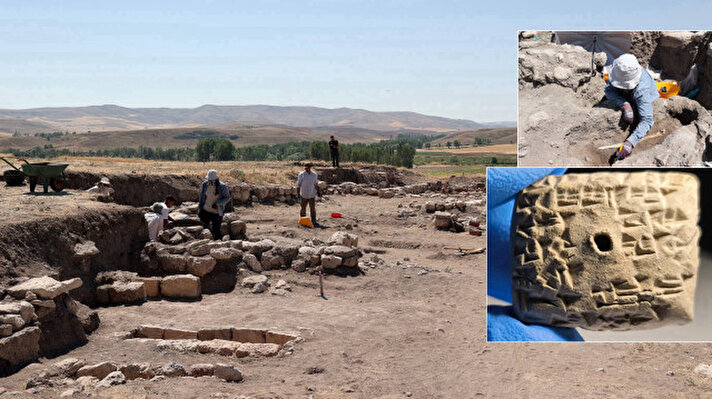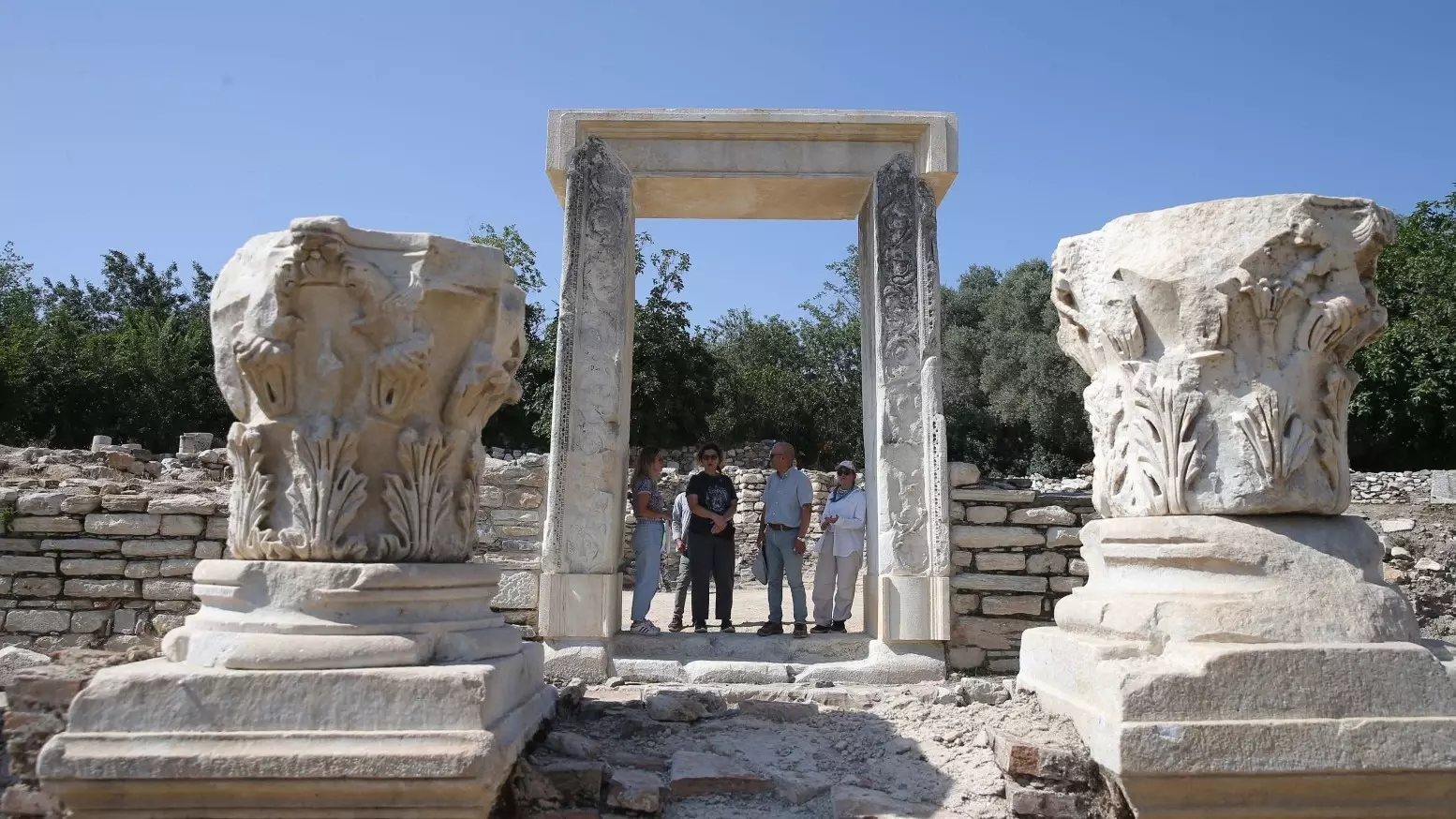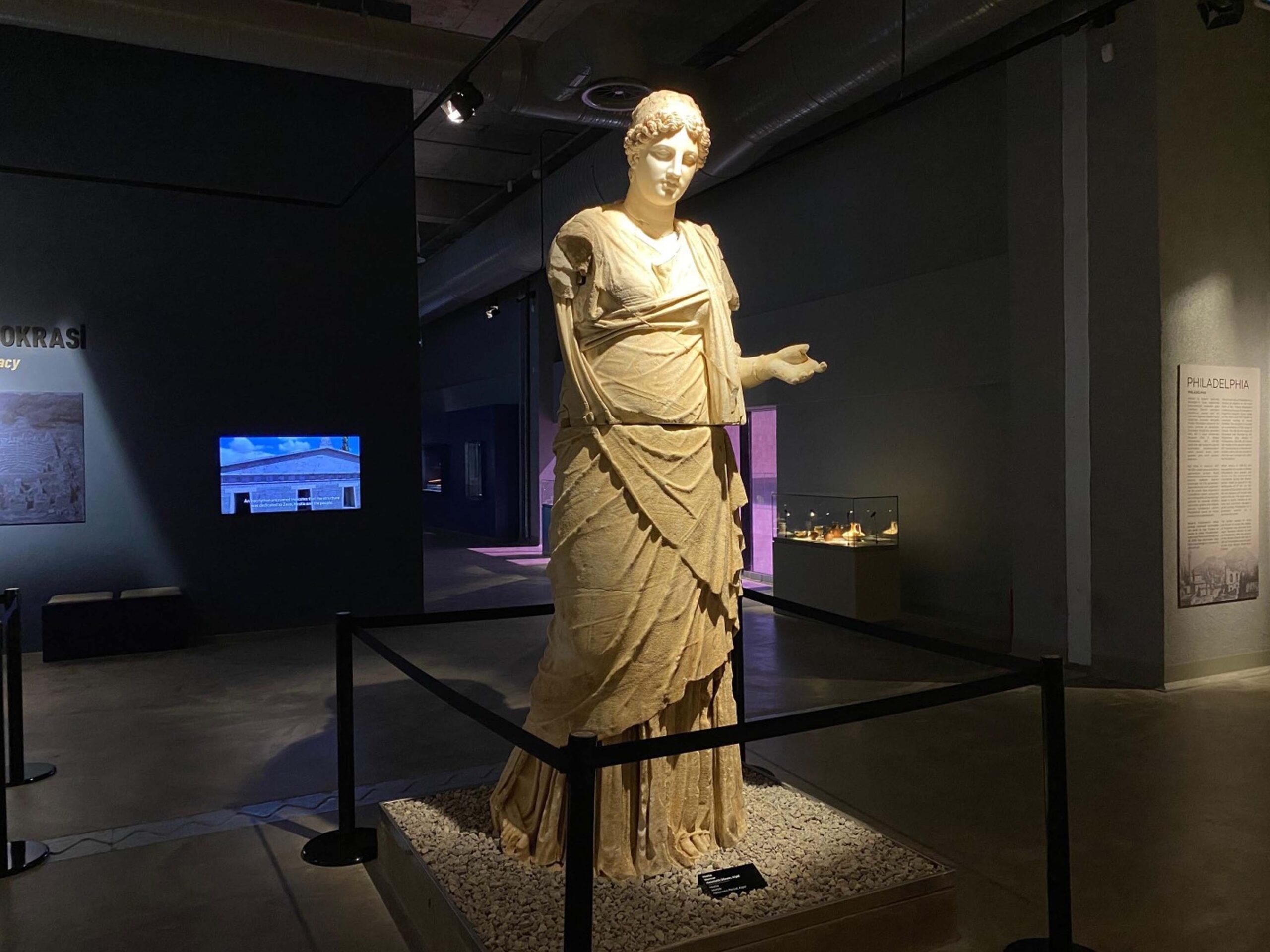A rare Hittite-era tablet featuring ancient bird divination practices has been uncovered during ongoing excavations at Kayalıpınar, the site of the ancient city of Samuha, located in the Yıldızeli district of Sivas province.
The excavation, led by Dr. Çiğdem Maner from Koç University’s Department of Archaeology and History of Art, began on July 3 and will continue until mid-September. The multidisciplinary team consists of 23 experts specializing in archaeology, history, Hittitology, and anthropology from institutions in Türkiye and abroad.
Among this season’s most remarkable finds is a well-preserved cuneiform tablet inscribed on both sides, believed to date back to the Hittite period. The tablet, which includes a hole at its center surrounded by string marks, may have been designed for suspension or to be worn, possibly during ritual use.
“This is a complete bird oracle tablet,” Dr. Maner said. “The references to bird flight patterns indicate it was used for divination, a common practice in Hittite religious traditions.”
The site of ancient Samuha is known from Old Assyrian and Hittite texts as a key cult center for the goddess Istar. Dr. Maner explained that the tablet likely played a role in ritual communication with the divine, consistent with other cult-related cuneiform texts found at the site.
In addition to the tablet, over 50 seal impressions linked to officials and royalty have been discovered during the 2023 and 2024 excavation seasons. Maner noted that these may point to the presence of an administrative or sealing building yet to be uncovered, as the team is currently excavating through layers containing Early Christian-era burial remains.
Efforts are also underway to prepare the site for future public access. “Our goal is to eventually open Kayalıpınar to visitors,” Maner added.







